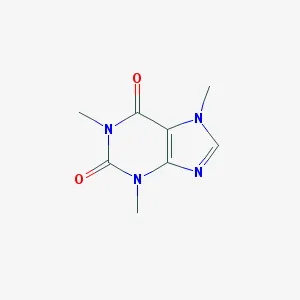What does it take you to be productive? First of a goal of course, and then the right surroundings. Maybe some classical music to get your brain into work mode. And then, the most important ingredient for a productive day: Coffee!
Americans drink an average 3.1 cups of an average size 9oz coffee every day (1). That is more than 1100 cups of coffee every year. Internationally roughly 1.6 billion cups are consumed each day (2). Each year, more than 40 billion dollars are spend on coffee in the USA alone (1).

It is safe to say that coffee is one of the most popular beverages in the world. I have to count myself to the coffee enthusiats. However, in the back of my head I remember a scene from a hospital shadowing preceptorship I participated in. The doctor I was shadowing was an electrophysiologist, a cardiologist specialized in the electrical signaling that regulates the heart rhythm. He was performing a lot of ablations, a catheter procedure that is performed to fix atrial fibrillation, a heart arhythmia caused by electronic impulses released by cells that are not supposed to send those. One of the causes he stated was too much caffeine. On the other hand, I remember seeing a documentary in which a doctor stated that coffee has many health benefits, that are linearly depending on how much coffee you consume. This controversy grabbed my intention. Today I will talk about caffeine and its implications on our health.
Caffeine - Not Just Another Chemical
Chemically speaking, caffeine is part of the xanthines or methylxanthines, to be even more precise (3). It has the chemical formula C8H10N4O2 and is also known as 1,3,7-Trimethylxanthine (4).

Structure of caffeine - Source
If you are a biochemist, biologist or ever had a lecture in biochemistry you can see that caffeine resembles the structure of guanine and adenine, two of the nucleic acids that form the base pairs in our DNA. This should not be a huge surprise since caffeine is a chemical that is produced in many plants, such as the coffee plant, tea and even cocoa plants (3). Like many other chemicals of floral origin, caffeine has an effect in the human body. I will go into more detail later in this post. Caffeine can dissolve rather easily in water (4), which is why we can extract it with boiling water from coffee beans and tea leaves.
Caffeine in its pure form is a white, crystalline powder with no smell that forms neutral solutions when dissolved in water (4). But what makes coffee so enjoyable? Why is it, that caffeine is consumed by so many people in such amounts?
Is Coffee A Drug? How Does It Affect Us?
Short answer: yes. In fact, caffeine, which is found in coffee, is the most used drug in the world, because it is generally safe to consume low to moderate amounts (5). This is a great relief to me, because my one cup a day of coffee does not seem to be very bad for my health.
Why is caffeine a drug then? Because it stimulates. Caffeine targets certain receptors in our nervous system, decreasing deactivating mechanisms at dopaminic receptors (5) (this activity has been found in other addictive compounds such as amphetamines and cocaine (6),(7)). Increased dopamine activity in the brain is associated with many substances of abuse, though not all (8). Dopamine is part of the reward system in the brain, causing "good feelings", which may be an explanation that compounds increasing dopamine activity in the brain tend to be addictive (9).
Aside from the stimulant activity, caffeine has other health implications. The WHO recommends to decrease or abstain from coffee use during pregnancy because caffeine intake is associated with growth restriction, reduced birth weight, preterm birth or stillbirth (10). This seems to be more a precautionary action, as it is very difficult to tell whether caffeine intake during pregnancy, or other confounding factors are responsible for the observed effects (11).
Studies that involve very high exposures to caffeine are difficult to evaluate because of the many confounding factors that contribute to the risks that are not adequately evaluated; however, the animal studies indicate that even the highest human exposures in the epidemiological studies are unlikely to have reproductive and developmental effects (11)
This basically means that we do not really know whether coffee during pregnancy is bad or not. It even seems to have no effects at all. But we really do not know.
There seems to be a correlation between midlife coffee consumption and old-age Alzheimer´s occurance. People drinking 3-5 cups of coffee a day had a lower risk of Alzheimer´s or dementia (12). The decreased occurence of neurodegenerative diseases in coffee drinkers even extends to Parkinson´s disease (13).
(...) the exact impact of coffee consumption remains to be fully elucidated. At present, it seems safe to inform the general public that coffee drinkers need not fear for their health (13)
It appears that we can ingest huge amounts of coffee without toxic effects. A suggested toxic dose of coffee was stated to be roughly 80 cups of strong coffee (14). However, I am somewhat critical of this website. They also state that 4 cups of coffe a day over a long period of time may cause a wide range of diseases (such as osteoporosis, high blood pressure and heart disease, heartburn, infertility (in men and women) (14)), citing less sources than I did in this post - sources that I could not access. From what I read, the general consensus was that moderate coffee consumption (1-3 cups a day) is safe, possibly beneficial, for healthy adults, while certain risk groups (pregnant and lactating women, children and adolescents, young adults, and people with underlying heart or other health conditions), may be at risk for health implications (15). Then again, there is the electrophysiologist who told me too much caffeine may cause atrial fibrillation - he sadly never told me how much "too much" was.
My Two Cents
I am generally convinced that most anything we consume is beneficial in certain amounts, and harmful in other certain amounts. Like nutmeg - it is delicious in mashed potatoes but if you eat too much it may be toxic. Then there is also the fact that we are several billion people, with several billion different health statuses. Each of us reacts differen to substances. The key is moderation.

I will continue drinking coffee, however, not 20 cups a day. Coffee is a luxury good, something one should enjoy, rather than consume. It contains caffeine, and caffeine is a drug. It is used as a pharmaceutical (4). So, just moderate your consumption. It really is that easy, do not overdo it and you will be fine.
Shameless Self-Advertisement
Thank you very much for your time. I will appreciate every suggestion and comment (except the usual useless "good post" spams). If you liked this post you may like other posts on my blog, so feel free to check it out. I would also recommend checking out the SteemSTEM tag!
As always,
Cheers @lesshorrible